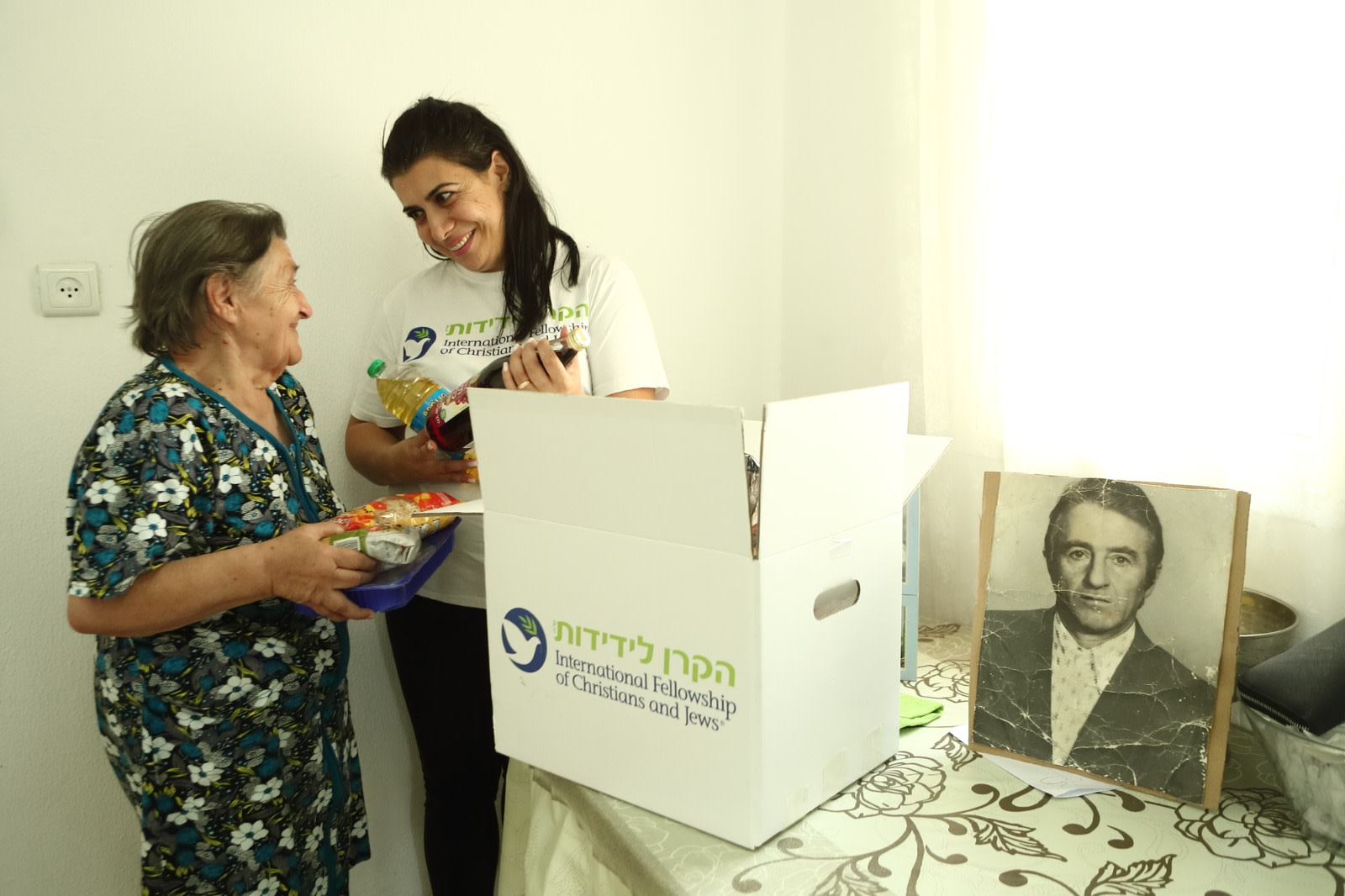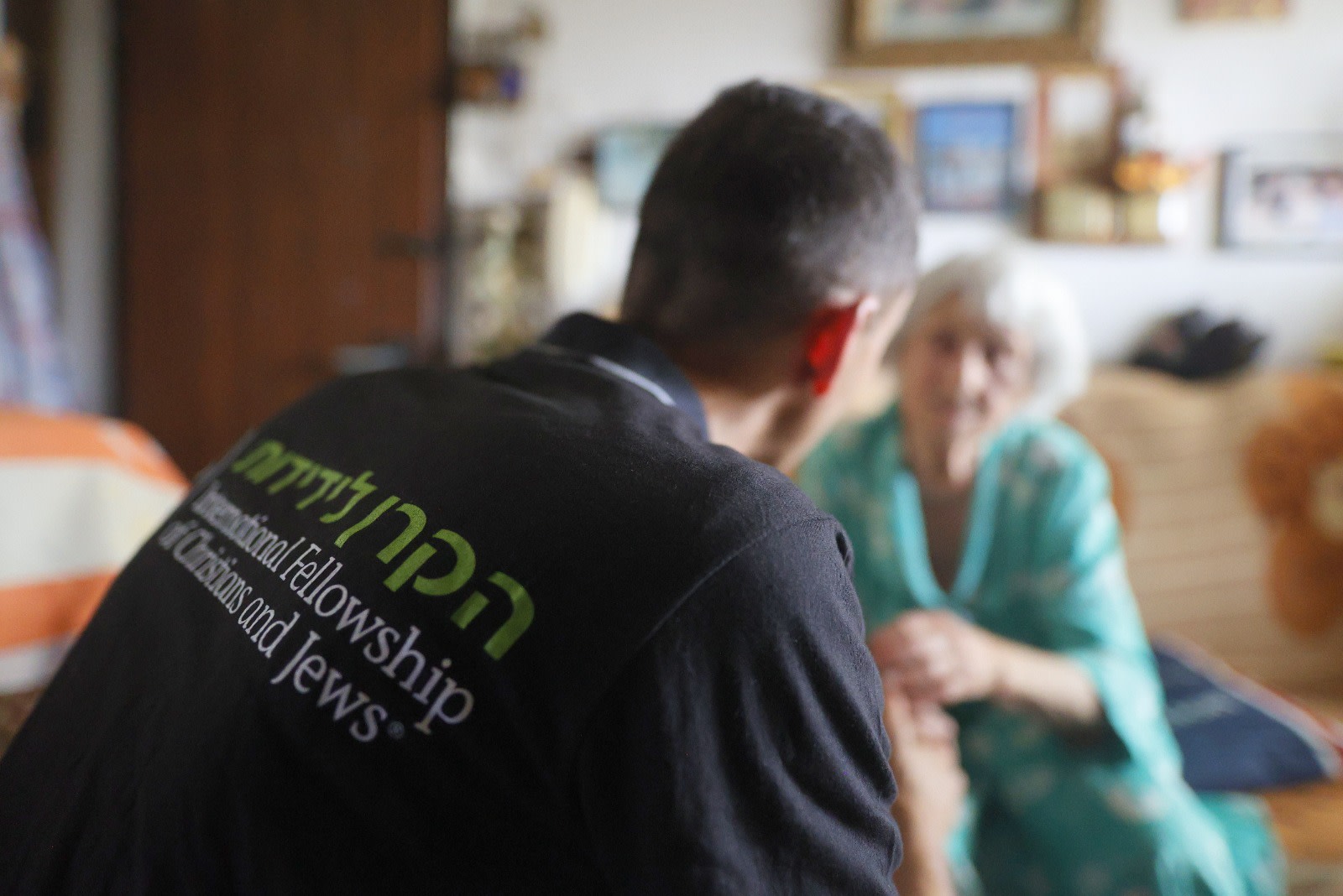More than NIS 210 million ($62 million) is being infused into Israel’s welfare system to help people in need across the country – mostly the elderly – with food and basic supplies.
In June 2022, the Ministry of Welfare and Social Affairs and the International Fellowship of Christians and Jews (The Fellowship) signed a historic agreement with the ministry, becoming its strategic partner for at least the next three years in distributing food (including baby formula for needy families) and other necessities, paying for medical needs, assisting with housing, basic electrical appliances and furniture and providing shoes and clothing.
The Fellowship is providing half the funding, which will go directly to 257 municipalities in which families, senior citizens and Holocaust survivors are looking for help.
The move expands the options for assistance and strips away many of the bureaucratic obstacles that stood in the way of getting help, as well as improves delivery – making it more discreet and respectful.
Local welfare departments are now issuing digital vouchers to those who are eligible, which they can receive via text message.

“One of the reasons that we deepened our ties with The Fellowship is not just because they are doubling our funds, but because they have a very effective platform that allows people not only to get help, but to get it in a simple, effective and respectful way,” explained Sigal Moran, director-general of Ministry of Welfare and Social Affairs. “People do not have to wait in line for handouts. They get a digital certificate and very discreetly can go and buy what they need like anyone else.”
This is especially important in a country like Israel, where the population is diverse and has varying kashrut standards. According to Efrat Edri Sharabi, deputy manager of the Jerusalem District for Ministry of Welfare and Social Affairs, her local branches serve people from all different cultures – Sephardic, Ashkenazi and Ethiopian, for example – as well as people who are both secular and ultra-Orthodox.
“This is something that really provides respect and privacy and it is very welcome,” she said.
The move was celebrated by The Fellowship.
Efrat Shahar, deputy general director of programs for The Fellowship, said it is both recognition by the ministry of the need to distribute basic needs, and of The Fellowship – that it offers the best way to get the job done.
‘There is no bureaucracy’
The Fellowship now works directly with the ministry branches across Israel. When a social worker recommends that this or that person needs something, it is delivered in three to four days. This could be anything from a refrigerator to vouchers for public transportation.
“There is no bureaucracy – nothing,” Shahar said.
Until now, service recipients had to achieve a number of approvals from various offices to receive aid and it took a long time.
The Fellowship has always worked in conjunction with the ministry, but in a very small capacity – a few million shekels a year – because of the red tape. It was COVID-19 that made the shift.
In March 2020, the ministry realized it had to help those being laid off from work or who lost access to their support system during the pandemic. It reached out to The Fellowship and they worked together to help target populations with more than NIS 50 million in the context of the needs that arose during the crisis.
Throughout this collaboration, the ministry received “very positive feedback” from local welfare departments, whose staff called The Fellowship’s assistance flexible, quick, productive, wide-ranging and successful.
It was this experience that led to the new contract two years later.
“In the past, we had a little bit of a flexible budget, but it was just too tight. We would run out of money by April or May and then those who came in, and needed travel, a bed, a fridge – there was just no budget to help them,” Edri Sharabi recalled. “This new budget is very blessed.”

Making food security a priority
Food security is something that Minister Meir Cohen has focused on since his first day in office, according to Moran, making it one of the ministry’s top goals.
“The minister realized this is a subject that had to be central to us because it is hard to help a family with sociological support or other kinds of support if there is nothing to eat at home,” Moran said. “You have to feed them and only then can you help them with other things.”
She noted that although it is new, it is already clear that the program has encouraged people to take advantage of the care the country is providing. They are now more likely to go into their local office, in which case they can get their vouchers but also connect to other supports that can include tools to empower them to leave the cycle of poverty.
For example, Moran recalled a woman who was missing her front teeth for years and her self-esteem suffered as a result. The new funding is so flexible that she was able to request dental assistance and received it. Since then, she got a job and is now becoming independent.
In another case, a woman who lives in the periphery could not afford public transportation to get to work in the center of the country, where salaries are higher and job more available. She applied for funding. Now, she has joined the workforce and is barely asking for services.
“The biggest mission of The Fellowship is supporting basic needs,” said Shahar. “This is our donors’ intention and our intention. While there are so many important programs from empowerment to education, we focus on making sure people have the food they need, a winter coat and blankets. There are not a lot of programs like that in Israel.”
“There are so many economic challenges facing needy and disadvantaged people in Israel,” added Fellowship President and CEO Yael Eckstein, ”and The Fellowship has a longstanding commitment to feeding the hungry, and providing lifesaving basics to the weakest of the population, especially elderly, orphans, and widows. It’s critical not only that we provide for their basic needs, but that we do so immediately without any unnecessary red tape and bureaucratic delays, and that we help restore their sense of dignity. With this new partnership, we are able to do all of this.
“I am so grateful to The Fellowship’s supporters. It’s their generosity and love for Israel and her people that make it possible for us to launch this new joint initiative. Every day in my work with The Fellowship, I see the positive impact that their generosity and love has on some of Israel’s most desperate people – and every day I thank God for it.”
This article was written in cooperation with the International Fellowship of Christians and Jews
